Since my last post about lung surgery complications over the holidays, I found myself back in the operating room—this time for the other lung. The body remembers, and so does the mind. The quiet math of healing, the slow reconstruction of breath. Pain lingers, but strength returns. And this time, the healing has been gentler.
Yesterday, as I was going about my day, I took a slow, deliberate breath—something so ordinary, so automatic, yet suddenly miraculous. Then, out of nowhere, a sneeze—loud, unrestrained, undeniable. It tore through me, a full-bodied declaration of life, and for a moment, I reveled in its sheer force, its raw release—proof that my lungs were healing again. Gratitude surged in, tangled with the sharp awareness of how little in life is ever truly certain.
For now, I’ll simply say this: I am here. Alive, breathing, healing. And I am profoundly grateful.
And yet—even as my body repairs itself, the world feels increasingly fractured, splintered at the seams. Everything I have worked for—peace, human dignity, the belief that policy should serve people, not power—feels not just under threat but under siege. The powerful no longer bother to justify the unforgivable; they simply normalize it. Cruelty no longer lurks in the shadows—it parades in plain sight. Injustice doesn’t whisper; it kicks down the door.
But if my body has taught me anything, it’s that the ground is never as solid as it seems. It shifts, tilts, betrays its own certainty. And even then, we choose where to plant our feet. We decide how we hold ourselves in the storm.
Our times call for a fierce, unshakable resilience—not just the endurance to withstand the storm, but the strength to rebuild in its wake. A resilience that refuses to yield to the relentless churn of crisis, that does not bend to exhaustion or apathy. Not just the will to persist, but the presence to remain awake, stay human, stay whole in a world that would rather we forget.
Last month, I spoke at Claremont McKenna College’s Athenaeum, delivering the 2025 Lecture in Diplomacy and International Security in Honor of George F. Kennan. The room was filled with students—including my son, Adrian—who will inherit not the world we envisioned, but the one we’ve left them.
My talk, “Across Frontlines, War Zones, and Boardrooms: The Real Demands of Responsible Leadership" wasn’t about titles or power. It was about the choices that define us: the quiet decisions made when no one is watching; the conviction to stand firm when compromise is easier; the integrity to hold the line when the cost is high; the courage to act when looking away would be more convenient; and the resilience to persist when hope feels distant.
The world isn’t short on intelligence or ambition; it’s short on moral courage. I’ve stood in places where decisions carried immense weight—crisis zones, prisons, negotiations where lives hung in the balance—and seen what happens when good people falter, when silence prevails, when the moment to act slips away.
The students arrived with urgency, their questions not abstract but immediate—pressing against the present. They understood the future wasn’t some distant horizon; it was already unfolding in their hands. And many weren’t waiting. They were stepping forward—not seeking permission or titles, but moved by conviction, standing for what matters.
That night, I reminded them: Our time here is finite. In the end, what remains is not just what we fought for, but how we stood—in love, in courage, in service to one another.
The future isn’t waiting. And if that night was any sign, neither are they.
With gratitude,
Stephanie
PS. For those who’d like to watch, here’s the YouTube video—the speech starts at minute 7:30, with the last 30 minutes dedicated to Q&A.
And here’s the text:
Across Frontlines, War Zones and Boardrooms: The Real Demands of Responsible Leadership
Good evening.
It is an honor to be here at the Marian Miner Cook Athenaeum delivering the Lecture in Diplomacy and International Security, in Honor of George F. Kennan.
Leadership is a word you hear often here at Claremont McKenna. But let’s start from square one. What actually comes to mind when you think of a leader?
A powerful prime minister, a CEO, a general?
Someone at the top, giving orders, making decisions, commanding attention?
What if real leadership isn’t about power—but about courage?
• Speaking up when the stakes are high and there’s a risk to safety or reputation.
• Telling the truth when it could cost you a relationship or a position.
• Taking action when it’s easier – and safer – to do nothing.
I’ve seen leadership tested in war zones and negotiation rooms, in crisis response and back-channel diplomacy. And here’s what I’ve learned—time and again:
The best leaders share two defining qualities:
• Integrity—The courage to stand firm, even when truth comes at a cost.
• Resilience—The strength to act on that truth, even under relentless pressure.
One without the other fails: Integrity without resilience burns out—clarity without action, conviction without impact.
Resilience without integrity bends to pressure—survival at the cost of principle, adaptability at the cost of truth.
(Of course integrity and resilience are not the whole story. They are the foundation, but leadership is ultimately about people—requiring humility, humanity, and compassion. And these qualities only endure when rooted in integrity and sustained by resilience).
But leadership isn’t just about values—it’s about how they hold up under pressure, in the moments that test us most. So tonight, I want to take you on a journey—through moments in my career where integrity and resilience were tested, and what those crucibles taught me about responsible leadership.
Because the greatest leadership lessons don’t come from success. They come from failure—personal missteps, institutional failures, the collapse of moral courage.
Let me take you one of those moments, Rwanda in 1994-1995.
Rwanda and the Failure of Responsible Leadership
I was there with the Office of the UN High Commissioner for Human Rights (OHCHR), investigating genocide.
Visiting churches that were meant to be sanctuaries—but had become slaughterhouses. Listening to survivors speak in hushed tones, sharing stories no report could ever truly capture:
Of those who survived by hiding among the dead.
Of neighbors who became executioners overnight—the familiar turning into the unimaginable.
Our mission was clear: assess the scale of the genocide, gather crucial evidence, and help rebuild a shattered judicial system to ensure accountability. But what we hadn’t anticipated were the massacres still to come.
This time, the perpetrators weren’t those who had orchestrated the genocide. They were the new government— the same leaders who had vowed to break the cycle of violence, the same ones who had promised, No revenge.
April 1995: Kibeho: A vast, overcrowded internally displaced persons camp—50,000 people crammed together. Hutu civilians, former soldiers, genocide survivors, and suspected perpetrators. All trapped in limbo.
Then: Gunfire. Stampedes. Mortar shells ripping through makeshift shelters.
When the last shots were fired, 4,000 lay dead.
And the world? Silent. The UN watched. Peacekeepers were ordered to stand down.
No one stepped in. No one stopped the slaughter.
Why? Because challenging Rwanda’s new government could have consequences—it could strain diplomatic ties and jeopardize careers. Because many wanted to believe in Rwanda’s redemption story—to trust its promises of justice without revenge, to believe the cycle of violence had ended.
Even when the evidence said otherwise.
Kibeho wasn’t just a massacre. It was a betrayal—by those who vowed to protect, by those who chose silence, by a world that looked away. It was also a failure of responsible leadership.
And the UN’s response? Bureaucratic damage control—detached, procedural, devoid of urgency.
Responsible leadership always comes down a choice: Speak, or stay silent. Act, or stand by.
The UN stood by. The world was silent.
I asked myself: If no one else would speak—could I live with my own silence?
The answer was no. Before I left, I gathered everything—memos, cables, reports. There was no internet. No cloud storage. Just battered boxes crammed with truth, carried onto a sweltering tarmac and onto the plane.
Back in Geneva, I wrote a book. I knew that publishing it could shut doors for me at the UN. But I decided: if truth closed doors- then those were never the doors worth walking through.
And the book would not just document a massacre. It contributed to the development of the UN Guiding Principles on Internal Displacement—the first international framework to protect displaced persons. (A second edition even explored a haunting question: Would these Guiding Principles have changed the fate of Kibeho had they existed at the time?)
But what I hadn’t foreseen was the way the truth would ripple outward.
Years later, former peacekeepers—once bound by orders and institutional loyalty—came forward with their stories. Stories about the orders that kept them standing back while people were slaughtered.
They told me the book helped give them the courage to speak.
Because truth—once spoken—refuses to stay buried.
And nearly three decades later, the inaction of the past still shapes the present. The same government is in power: ruling through fear and repression, assassinating critics in and outside the country, and waging war in the DRC. All with the backing of Western allies too invested in their own narratives to hold it accountable.
Unchecked power doesn’t just persist—it consolidates. And when leaders are shielded from consequences, they rule without fear.
But I also learned something else. Even when institutions fail, individual action still matters. Truth has a ripple effect.
Because in the end, responsible leadership isn’t a title you hold. It’s a truth you live by. Rwanda was not the only place where I learned that lesson.
Bosnia: When justice takes a back seat to politics
In 1995 the Dayton Agreement ended the Bosnia war and soon after I was sent as a Human Rights Officer, seconded by my government to the OSCE, to assess whether Bosnia was ready for free and fair elections.
It wasn’t.
Ballots meant nothing when war criminals still ruled through fear, when hundreds of thousands of displaced people couldn’t return home to vote, and when political dissent was silenced.
We sent report after report, detailing why the conditions for free and fair elections simply didn’t exist. Holding them prematurely wouldn’t unify Bosnia—it would entrench wartime territorial gains and deepen divisions.
Then a senior U.S. diplomat made it clear to me: “We are holding elections—even if the conditions aren’t right.”
And just like that, Bosnia became a box to check. This wasn’t about peace. It was about optics. It was about a political milestone. It was about a White House that needed a success story.
I had a choice: stay and be complicit—or walk away. It wasn’t easy. This was a coveted post.
But I resigned. And what followed confirmed my fears.
The 1996 Bosnian elections proceeded as planned--marred by fraud, intimidation, and manipulation. They didn’t restore democracy. They erased entire displaced communities from the political system. They solidified the ethnic cleansing wrought by the war. War criminals roamed free for years – some leading factions, others shielded by the state.
And NATO? It looked the other way. Its forces (IFOR) somehow never crossed paths with Radovan Karadžić or Ratko Mladić -- though everyone else seemed to know exactly where they were. They were arrested only 13 and 16 years later. By then, their ideology had taken root.
Justice came too late.
At the time I had feared that resigning just five months into my contract would close doors--- that walking away would cost me future opportunities. But what stayed with me was this: I had chosen principle over complicity.
Responsible leadership isn’t just about standing firm. It’s about knowing when to step away --- Especially when staying means lending your credibility to a process that betrays its purpose. It means: Valuing integrity over career. Making the hard choice. Trusting your resilience to weather the consequences
So you can continue to show up. Again and again.
Nigeria human rights: The power of standing firm
I had now seen two clear failures of responsible leadership: one where silence enabled a massacre; another where political convenience triumphed over justice.
I was about to see what happens when leadership refuses to yield.
In 1997, was back at the UN (lo and behold, they did let me back in!) I was assigned to work with Soli Jehangir Sorabjee, the UN Special Rapporteur on Human Rights in Nigeria. A former Attorney General of India, he was known for his unwavering moral clarity. Where others hesitated, he acted. Where others softened their words, he made them sharper. Where others tiptoed around the truth, he walked straight through it.
At first Nigeria’s military regime refused to let us in to the country, so we would travel to London, where dissidents and human rights leaders could slip away to meet us. We listened. We documented. We reported.
Then, at last we made it into Nigeria. One of our most pivotal stops was Ogoniland, a region at the heart of Nigeria’s oil wealth—and its suffering. For years, oil companies reaped billions, while local communities were left with poisoned water, dying crops, and razed homes—many forced to flee. At our meeting place, families spoke in hushed tones, their voices carrying the weight of loss.
Then came the moment I will never forget—sitting with the family of Ken Saro-Wiwa. Just two years earlier, Saro-Wiwa and eight other Ogoni leaders—the Ogoni Nine—had been hanged after sham trials. Their crime? Speaking out against Shell Petroleum and the Nigerian military’s devastation of their homeland. They weren’t just silenced. They were executed.
Grief still hung in the air. But so did quiet defiance. Their families spoke of threats, intimidation, the crushing weight of injustice. And still, they refused to be silent.
Soli listened—deeply, unwaveringly. His presence alone was a statement of resolve. And he didn’t just bear witness. He acted.
We made unannounced prison visits: Walking through overcrowded, stifling cells where political detainees were locked away for speaking out. We investigated extrajudicial killings and torture. Every testimony unsettled those in power. That was the point.
Our report to the UN Human Rights Commission didn’t just expose the brutal realities of military rule in Nigeria. It forced Shell Petroleum into the global spotlight. At the time, corporate accountability barely existed. Human rights violations? Those were seen as the concern of governments, not businesses. But our report made it clear: Shell’s partnership with the Nigerian military wasn’t just business. It enabled human rights abuses.
For months, Shell lobbied us. Pressed us. Tried to water down our findings.
We didn’t budge. And in the end, the truth forced action. Our report changed the conversation. Shell dismantled its private security forces. It launched environmental assessments. It pledged cleanup efforts. Although nowhere near true accountability, it marked a shift: Corporations could no longer operate in conflict zones without scrutiny.
Then, ahead of Pope John Paul II’s visit, we sent him a letter—listing the names of political prisoners, requesting he call for their release. It worked.
It was a reminder that, sometimes, making injustice impossible to ignore is enough to force action.
Soli didn’t just fight for justice—he lived it. He became, not only a mentor, but a lifelong friend.
Soli didn’t believe in pretense. He believed in action. In showing up, speaking hard truths, and refusing to look away.
That belief stays with me. Because integrity isn’t a principle—it’s a choice. One we make, over and over, until it defines who we are.
Mary Robinson in China: When power resists, leadership persists
When Nigeria transitioned to civilian rule, Mary Robinson—then the UN High Commissioner for Human Rights—turned to me with a formidable challenge: China.
Engaging Beijing on human rights was urgent, but also a battlefield.
As a permanent member of the UN Security Council, China resisted external scrutiny, viewing it as an intrusion on its sovereignty. Every conversation was a negotiation. We spoke on behalf of political prisoners, ethnic minorities, dissidents—pushing the limits without shutting the door.
If Nigeria was a test of moral clarity, China would test whether responsible leadership could survive inside a system built to resist it.
This work demanded strategy, resilience, and moral courage—qualities that Mary Robinson possessed in abundance. As former President of Ireland, she used her stature to engage directly with China’s top leadership, raising human rights concerns both publicly and privately—a delicate but necessary dance. Her negotiations with President Jiang Zemin led to a landmark Memorandum of Understanding—an unprecedented opening in UN-China human rights cooperation.
But responsible leadership isn’t just about ink on paper. It’s about what happens in the room. One moment stands out: On her final trip to China, I accompanied Mary to a high-stakes meeting at the Chinese Foreign Ministry. The room was tense. Senior officials—visibly uneasy—tried to cut the meeting short. They dodged. They deflected. They wanted her to move on.
But Mary didn’t flinch. With quiet resolve, she pressed forward—relentless. She quickened her pace, ensuring every point was made, every prisoner’s name was spoken. And then, she did what few dared -- he stepped in front of the press—
No diplomatic half-measures. No watered-down words. She spoke the truth. Clearly. Publicly. Unapologetically.
These moments were a masterclass in leadership: The kind that holds firm, especially when the stakes are highest. Because integrity isn’t just about speaking truth to power— It’s about refusing to let power reshape truth for its own convenience.
Inside China’s expanding influence: Opening ICG’s Beijing Office
I carried that lesson forward as I deepened my work on China.
Even while working with Mary Robinson, I was noticing a clear shift: Repression was tightening—but it wasn’t stopping at China’s borders. Beijing was extending its global reach through trade, diplomacy, and strategic investments; shielding authoritarian regimes with diplomatic cover, economic ties, and UN vetoes; and extracting resources from volatile regions, deepening its influence in fragile states.
Back then – more than two decades ago -- few were paying attention. But I knew I needed to understand more. To go deeper.
So I took an International Affairs Fellowship at the Council on Foreign Relations in New York, researching how China was reshaping conflicts and power dynamics—expanding its influence in ways that altered global security, particularly in Iran, Myanmar, North Korea, Sudan, and Zimbabwe
But research wasn’t enough. I needed to be back in action.
So I moved to Beijing to open an office for the International Crisis Group, tracking how China’s growing influence was affecting global and regional conflicts and flashpoints. I focused on identifying levers of influence within China and helping the rest of the world better understand these shifts—and respond effectively. This time, I was with an NGO. No government backing. No UN passport. No multilateral shield.
Even our name raised eyebrows: In China, ICG’s name in Mandarin—国际危机组织 (Guó Jì Wēi Jī Zǔ Zhī)— meant "International Crisis Group." But literally translated, it could also mean "Group Creating Crisis."
My Chinese friends jokingly gave me the nickname "the crisis girl." More than once I wished the organization had "peace" in its title instead.
The irony? Later, when my son and I moved to DC and I worked for the U.S. Institute of Peace, I found myself wishing that the word “crisis” was in the name, because in Washington, "peace" doesn’t exactly scream urgency.
Back to China, perception was everything.
It was also a relationship-driven culture, influence in China didn’t just happen in official meetings. Some of the most revealing moments took place in informal settings—including the quiet corners of my apartment—where diplomats, academics, policymakers, and journalists, both Chinese and foreign, gathered for dinner, debate, and exchange.
Chinese officials from competing government agencies, who rarely engaged in direct debate in formal settings, found themselves in unguarded discussions, debating perspectives they would never acknowledge in public.
Bringing ICG analysts from conflict zones to Beijing not only deepened expertise but also created opportunities for informal exchanges.
But the core of our work remained our research. Over five years, we published more than a dozen reports on China’s role in various conflict-prone regions, providing concrete recommendations to reduce tensions. These findings didn’t just sit on a shelf—they informed policy discussions, shaped debates, and reached wider audiences through articles, op-eds, and media in English, French, and Chinese.
Policymakers took notice. Our research wasn’t just read—it was used. Western diplomats copied entire report sections verbatim into their cables—a quiet acknowledgment of its value. (Though, I suppose here in academe, it’s just called plagiarism.)
But what surprised me most wasn’t the influence our reports had abroad.
It was how they were received inside China: Government ministries engaged with findings they couldn’t openly endorse. The Central Party School, where future Chinese leaders studied global challenges – examined our analysis. The Export-Import Bank sought our insights before making major funding decisions.
In a system where censorship restricted access to detailed, on-the-ground research, our analysis filled a crucial gap. Our reports weren’t always welcomed. But they couldn’t be ignored. Because responsible leadership isn’t about saying what’s convenient—it’s about making the truth undeniable.
Holding North Korea—and the Great Powers—Accountable
Five years in Beijing passed quickly. As much as we loved Asia, it was time to bring my son back to this country, and for me to decide where my work would take me next.
So, I reentered the world of multilateral diplomacy—back to the UN, for the third time. This time, I thought, would be different.
Now, I was an Independent Expert reporting directly to the Security Council, part of a Panel of Experts investigating North Korean sanctions violations.

Independence was the mandate. Politics was the reality.
The panel was a minefield of competing national interests: Five experts from the Security Council’s permanent members; three more from Japan, South Korea, and Singapore; many on leave from their governments—technically independent, but far from impartial.
The mandate seemed clear: Follow the evidence. Present the truth.
In practice? Facts were anything but neutral. A single piece of evidence could ignite a geopolitical firestorm: a weapons shipment; an illicit transaction flowing through a global bank, or a North Korean front company embedded in an international supply chain.
For weeks before submitting reports to the Security Council, we argued deep into the night: Running on caffeine, exhaustion, and sheer will. Every sentence dissected, every phrase a potential flashpoint. Frustration boiled over more than once. Our reports were torn apart—literally and figuratively.
The stakes were real. A single paragraph could trigger new sanctions, unravel fragile negotiations, or force governments into confrontation.
And yet, integrity meant refusing to let politics dilute the truth—and resilience meant enduring the pressure without bending
A New Front: Cyber Warfare
By the time I returned to the UN, warfare had evolved: No longer just bombs and bullets—it was code, currency, and deception. Wars waged in bandwidth and backdoors—and North Korea was ahead of the curve.
Many diplomats, trained in conventional warfare, still thought in terms of tanks and missiles—not malware and money laundering. They didn’t see that cybercrime wasn’t just disruption, that it was bankrolling Pyongyang’s weapons programs.
Millions flowed through hacked banks, stolen cryptocurrency, and digital extortion— like the Bangladesh Bank heist, where $81 million vanished from the New York Federal Reserve over a weekend. This wasn’t just cybercrime—it was digital warfare. North Korea wasn’t skirting sanctions; it was rewriting the rules of evasion in plain sight.
The report I drafted was the first UN investigation to expose North Korea’s cyber hacking program. It forced action: governments closed loopholes. Banks tightened cyber security. The global financial watchdog, FATF expanded its standards to include virtual assets and urged stricter oversight. Sanctions enforcement grew sharper teeth.
The Other Battle: Survival
But financial pressure was only part of the story. Behind the scenes, another battle raged— not just over illicit finance, but over survival.
UN resolutions were clear: sanctions weren’t meant to block humanitarian aid.
But political maneuvering kept life-saving supplies out of North Korea—turning survival into a bargaining chip.
The U.S. was deliberately stalling UN approvals for food and medicine shipments, using aid as leverage in its power struggles with Russia and China.
The official U.S. line? “Safeguarding sanctions enforcement.” The reality? Starvation as collateral damage.
I wrestled with it. Technically, this issue wasn’t my responsibility—it fell to another panel expert. With so many urgent cases on my plate, I could have easily justified staying out of it.
But was that the truth—or just a justification for complicity?
There are moments when inaction is a choice—a choice to look away, to let injustice stand unchallenged. This was one of those moments. So I took it on.
The Russian panel member technically responsible for this issue wasn’t equipped for an investigation of this scale. It required tracking denied shipments, coordinating with humanitarian organizations, and navigating complex bureaucratic barriers across multiple UN agencies.
So I did the work, and he took the credit. It wasn’t about recognition—only about getting the job done.
And in the end, the report marked a turning point. Nearly every government—except the U.S.—praised it, as did NGOs and humanitarian groups. More importantly, it led to real change: faster, more transparent exemptions; more food and medicine reaching those in need, and fewer deadly delays. The findings also led to new UN guidelines—Implementation Assistance Notices (IANs)—which were extended to other sanctions regimes, ensuring they no longer blocked humanitarian aid and helping prevent future delays in lifesaving assistance.
And I realized something else: holding the U.S. accountable didn’t just drive results—it strengthened my credibility to take on China and Russia, which made up the bulk of my investigations.

I often reminded Member States: my job wasn’t to take sides but to make them all equally unhappy with me.
Because integrity isn’t about just calling out geopolitical rivals. It’s about holding all governments to the same standard—including, and especially, your own.
Resilience and Justice: Coaching those on the Frontlines
After years behind policy desks and in negotiation rooms—shaping strategies for others to carry out— I felt a deep pull to return to where change is lived, not just debated. To the frontlines. Where transformation isn’t theoretical. Where justice is fought for—case by case, truth by truth.
Lasting change doesn’t trickle down from the top—it takes root in the hands of those who risk everything for it. Lawyers defending political prisoners at great personal cost. Activists exposing corruption despite relentless threats. Human rights defenders standing between the vulnerable and those who seek to harm them. These leaders aren’t in corner offices; they work in courtrooms, prisons, and refugee camps.
So after certifying as an executive coach at Columbia University, I shifted my work from policy to people, from institutions to those on the ground. I began coaching and consulting to support leaders in conflict-affected states, fragile contexts, and countries in transition.
Some of the work closest to my heart these days is with The International Legal Foundation (ILF), which defends the rights of the most vulnerable in places where justice is often out of reach. The legal aid lawyers I work with—in Myanmar, the West Bank, Tunisia, and soon Afghanistan—aren’t just defending individual rights. They are keeping the flame of justice alive in the world’s most fragile places by defending the marginalized. Challenging systemic injustice. Building pathways to lasting peace—so history doesn't repeat itself
Their work isn’t just about protecting individuals—it’s a bulwark against repression, upholding the rule of law and the hope for democracy.
But the toll of this work is heavy. In the West Bank, legal aid lawyers navigate military incursions, endless checkpoints, and home demolitions.
Their clients? Mostly refugee children. So their work extends beyond legal defense -it’s holistic legal representation. They coordinate with social workers because justice isn’t just about laws--- It’s about survival. On my last trip, the lawyers’ translator shared something remarkable—he had once been a client of the International Legal Foundation. As a child, these lawyers fought for him. Now, he fights for others.
In Myanmar, where the unraveling since the 2021 coup continues to deepen—the lawyers operate amid bombings, disappearances, mass displacement, and forced conscription.
They defend political prisoners. They fight for the persecuted – including Rohingya children, whose very existence the government seeks to deny. And still, they keep going.
These lawyers are brimming with integrity. In corrupt systems, they remain incorruptible. They refuse bribes, resist pressure They uphold the law—even when those in power mock it.
But integrity alone is not enough. Not paying a bribe means they don’t get access to court files until the last minute. It wears them down.
And when resilience fades, even the strongest leaders risk being silenced—not by failure, but by exhaustion. True leadership, therefore, requires both integrity and resilience: integrity keeps them committed to justice in a system rigged against them; resilience helps them remain standing despite exhaustion, threats, and intimidation.
For years, resilience was seen as something you either had or didn’t. But now we know it’s a skill -- one that can be built, strengthened, and sustained. That’s why my work brings together neuroscience, organizational psychology, and proven coaching methodologies.
To help those on the front lines: Enhance their resilience. Optimize their impact. Sustain their mission over the long haul. Because leadership today—like the battles that matter most—is not a sprint. It’s a marathon.
We live in an era of global turbulence. A world often described as BANI: Brittle. Anxious. Nonlinear. Incomprehensible. A world where stability is an illusion, where the path ahead is uncertain, and the obstacles are relentless. In this turbulence, leadership isn’t about power—it’s about endurance. It belongs to those whose resilience and integrity don’t just carry them forward but allow them to shape what comes next.
Leading While Dying: A Terminal Diagnosis and the Lessons That Last
My career has taught me much about responsible leadership and its twin pillars: integrity and resilience. I’ve faced moments that demanded everything—that tested my limits, stripped away certainty, and forced me to stand firm when retreat seemed easier.
But nothing—not war zones, not high-stakes negotiations, not impossible decisions—prepared me for the stillness of that medical office. For the quiet gravity of the doctor’s voice: You have Stage 4 cholangiocarcinoma. A rare, aggressive, incurable bile duct cancer.
No bargains. No illusions. Just time—slipping through my fingers like sand.
In that instant, the world I had built—the world of plans, strategies, and an assumed future—collapsed. Not under the weight of undone work or untraveled roads, but with the quiet ache of time I had taken for granted.
Time with my son. Time with those I love.
The battles, the risks, the lines I had drawn—none of them felt as urgent as the time I still wanted. With him. With them.
Yet as the weight of loss settled, something remained. Not a plan, not a certainty. But a quiet knowing.
Not in words or theories, but etched into the shape of who I had become: grounded in integrity, resilience and clarity.
A map not just to endure, but for living -- fully, fiercely, in whatever time remains.
Because responsible leadership was never about avoiding hardship.
It’s about how we step into it—with the clarity of conviction and faith in our ability to keep showing up.
A terminal diagnosis didn’t shake my values. It sharpened them.
Integrity isn’t a badge we wear when it’s easy. It’s the quiet force that steadies us when the ground gives way.
The anchor that holds firm when uncertainty rises like a tide.
Resilience isn’t just weathering the storm—it’s walking straight into it.
It’s choosing—again and again—to move forward with purpose, even when the horizon dims. Trusting ourselves to walk on, even when the way is unseen.
Leadership Is Not a Title—It’s a Choice
Tonight I’ve shared parts of my career journey with you because the hardest decisions aren’t always made at the top. I was never a prime minister, a CEO, titan of industry, or politician. I wasn’t even the head of a UN agency.
But I led in the ways I could: By refusing to be silent. By standing firm when it mattered most. By showing up, again and again, in the face of fear and uncertainty.
Because in the end, responsible leadership isn’t a title you hold. It’s a truth you live by.
The Test Isn’t Coming—It’s Here
Your leadership doesn’t begin someday—when you get the job, the promotion, or the title.
It begins now.
• You define who you are before the world tests you.
• You decide what matters before compromise tempts you.
• You hold the line before pressure blurs it.
• You claim the truths you refuse to betray.
And then—life will test those choices. Relentlessly.
Some tests will be undeniable – where the choice is clear. And so are you.
But most will be quieter, more subtle: a slow erosion; a series of small surrenders; a compromise so minor it seems harmless; a pressure so quiet it almost goes unnoticedl a choice that, in the moment, feels easier to make.
This is where resilience matters. Not just in enduring, but in staying true. Holding your values—even when it’s inconvenient. Even when it costs you. Even when the world whispers, "just this once"
Leadership isn’t granted by titles. It’s defined by : the lines you refuse to cross, the truths you stand by, and the convictions you never surrender.
The world will test those choices-- again and again: When pressure mounts, when compromise feels easier, when the path ahead disappears.
What will you do?
Because responsible leadership isn’t given. It’s claimed.
Not by title.
Not by power.
But by the choices you make when no one is watching.
The world doesn’t need leaders someday. It needs them now. It needs you now.
The test isn’t coming.
It’s already here.
So the real question isn’t "Will you be ready then?"
It’s "What will you choose now?"
Thank You.
30 min Q&A




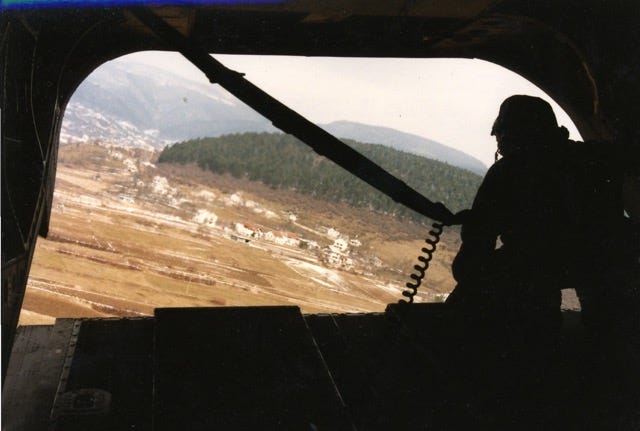

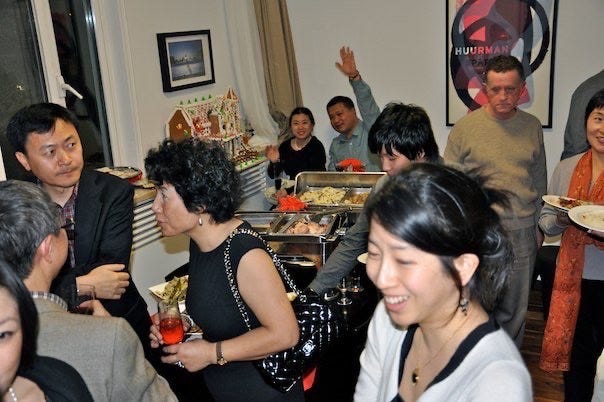
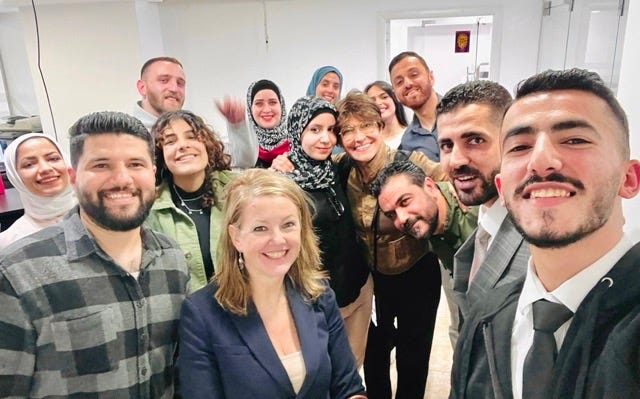



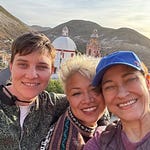

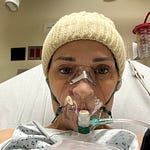
Share this post